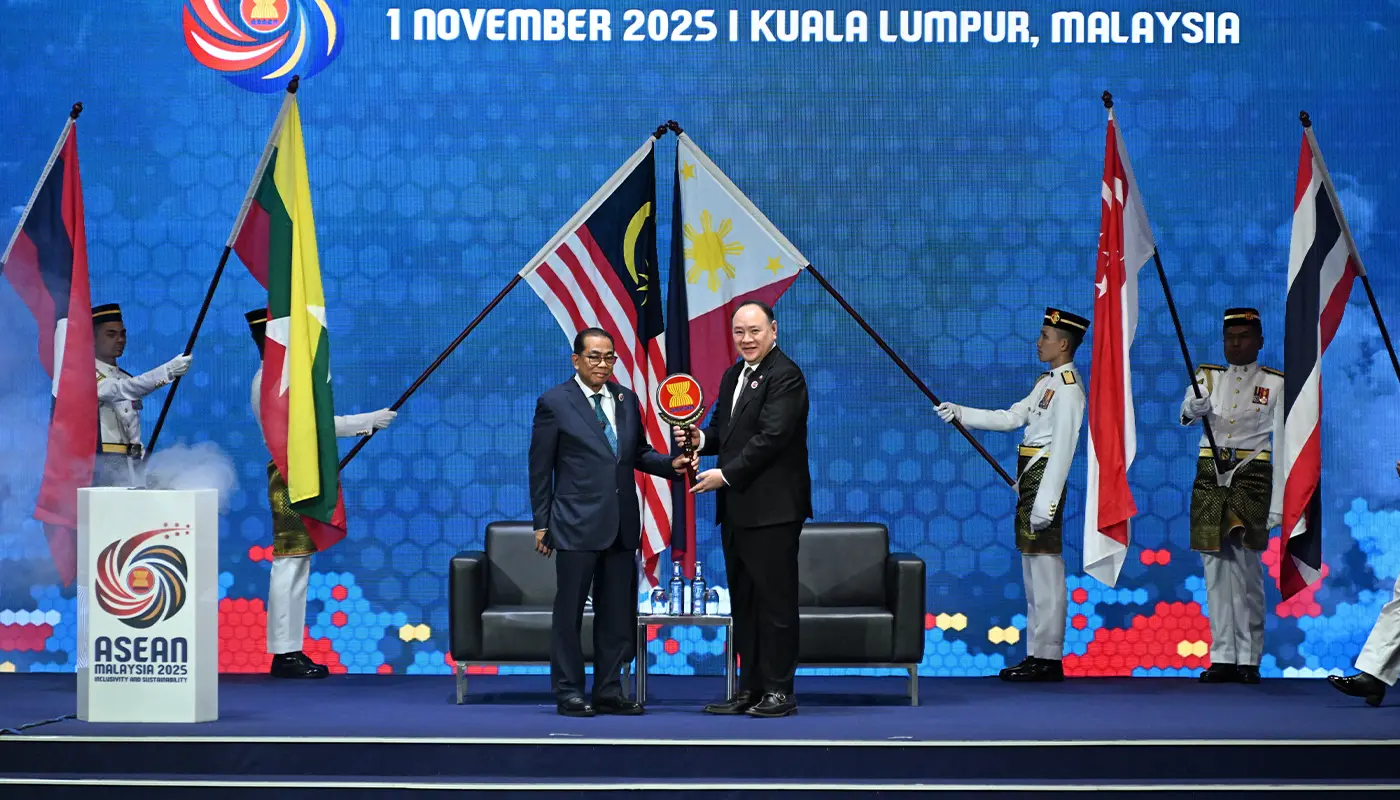KUALA LUMPUR – The Philippines will take over the chairmanship of the ASEAN Defence Ministers’ Meeting (ADMM) and ADMM-Plus from Malaysia in 2026, following a formal handover ceremony held in Kuala Lumpur on 1 November 2025 during the 12th ASEAN Defence Ministers’ Meeting Plus.
The event, attended by ASEAN Secretary-General Dr Kao Kim Hourn, marked the conclusion of Malaysia’s tenure as chair of the defence sectoral body.
The symbolic transfer of responsibilities was carried out by Malaysia’s Defence Minister Datuk Seri Mohamed Khaled Nordin, who passed the ASEAN emblem to Philippine Defence Secretary Gilberto Teodoro Jr at the Kuala Lumpur Convention Centre.
Dr Kao commended Malaysia for its leadership during a year described as one of the most productive in the forum’s history.
He emphasised that the ADMM and ADMM-Plus had become vital platforms for fostering trust, enhancing cooperation, and addressing both traditional and emerging security challenges in the region.
Malaysia’s chairmanship saw the adoption of a record 25 initiatives, including new frameworks for maritime cooperation, cyber defence, and humanitarian assistance.
Defence Minister Mohamed Khaled noted that while one year was insufficient to achieve all goals, continuity was essential to ensure ASEAN’s long-term security agenda.
“What matters is continuity, to carry on the unfinished and unending mission of building a sustainable legacy for the ASEAN community,” he said.
Incoming chair Gilberto Teodoro Jr acknowledged the high standards set by Malaysia, remarking that his country had “big shoes to fill.”
He pledged that the Philippines would continue to strengthen regional defence cooperation, uphold peace and stability, and ensure ASEAN remained central in the evolving Indo-Pacific security landscape.
The Philippines will officially assume the chairmanship on 1 January 2026, and is expected to prioritise maritime security, counter-terrorism, and defence industry collaboration.
Analysts suggest that Manila’s leadership could also bring sharper focus to South China Sea issues, given its direct stake in maritime disputes.
The ADMM and ADMM-Plus, established in 2006 and 2010 respectively, have grown into ASEAN’s most significant defence cooperation platforms.
They bring together the ten ASEAN member states and eight dialogue partners – Australia, China, India, Japan, New Zealand, Russia, South Korea, and the United States – to address regional security challenges through dialogue, joint exercises, and practical cooperation.
With the Philippines preparing to take the helm, observers expect the forum to continue expanding its role as a cornerstone of regional defence diplomacy, particularly as geopolitical competition intensifies in the Indo-Pacific.
Sources: The Star, The Malaysian Reserve, ASEAN Secretariat News





